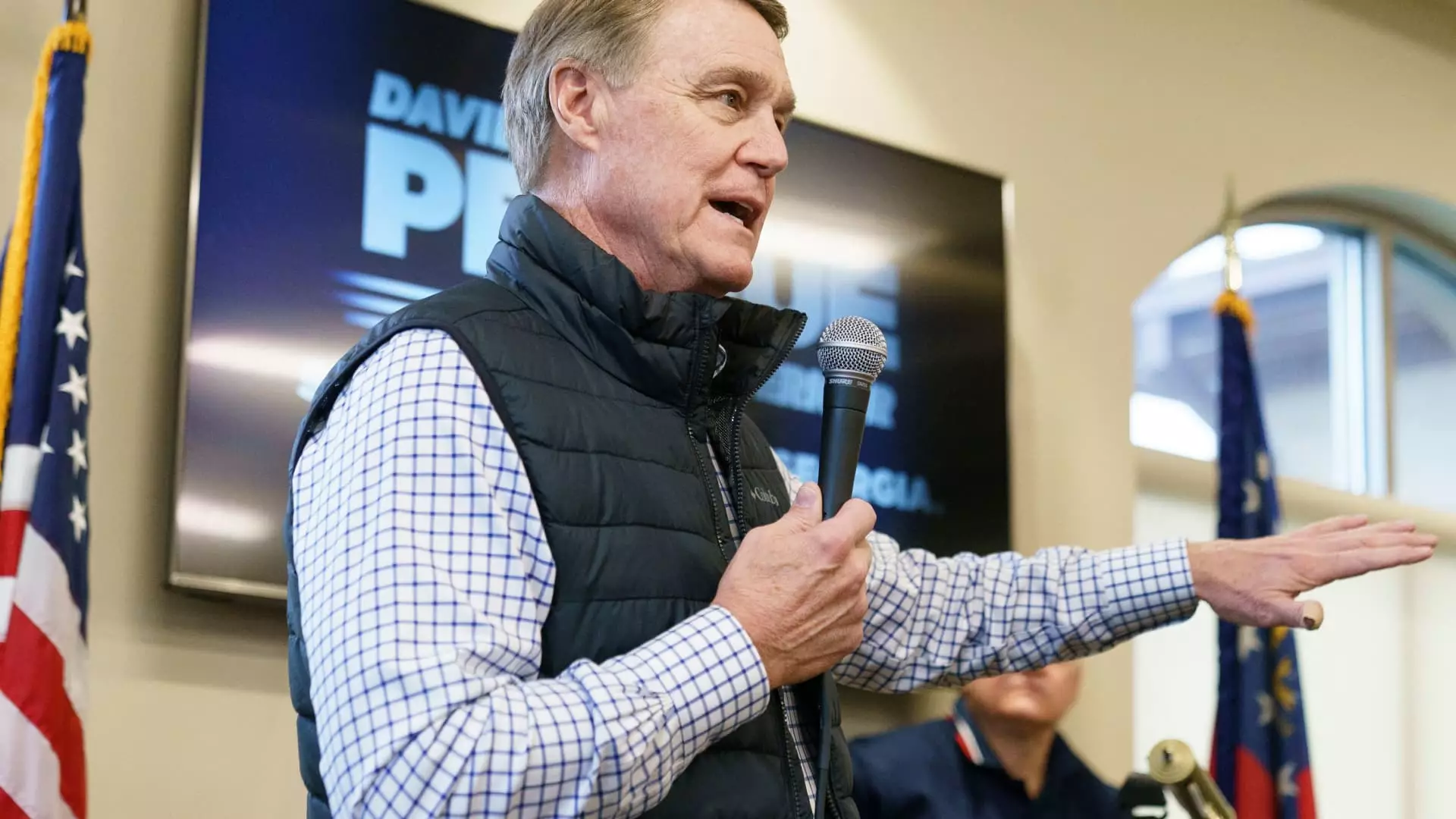In a move that reflects the complexities of U.S.-China relations, President-elect Donald Trump has announced the nomination of former Senator David Perdue as the next ambassador to China. This selection is pivotal, particularly as it aligns with Trump’s broader strategy to engage with Beijing amidst ongoing tensions primarily rooted in trade disputes and geopolitical mistrust. As Trump prepares to assume office on January 20, 2025, this appointment signals a focus on seasoned individuals capable of maneuvering through intricate diplomatic waters.
David Perdue, a Republican known for his tenure in the Senate from 2015 to 2021, brings with him a wealth of business experience, having spent significant time working in Hong Kong. This dual perspective could be instrumental in fostering a nuanced understanding of both Chinese operational practices and American political imperatives. Trump emphasizes that Perdue’s business background will be crucial in his administration’s attempts to maintain peace in the region while effectively engaging with China’s leadership.
Trump’s aggressive stance on trade with China has been a cornerstone of his political rhetoric, manifesting in threats of tariffs aimed at curtailing the flow of Chinese goods. The proposal to impose an additional 10% tariff—conditional on China’s efforts to mitigate fentanyl trafficking—illustrates the administration’s hardline approach. Trump’s commitment extends beyond just punitive tariffs; his historical inclination toward significantly higher tariffs underscores his administration’s willingness to confront what it deems unfair trade practices. The expectation from analysts is that such policies will foreground an administration committed to challenging China on multiple fronts, potentially reshaping the global economic landscape.
Perdue’s nomination also represents a return to a historical trend of appointing former politicians to the ambassadorial role in Beijing. Contrastingly, the Biden administration’s choice of veteran diplomat Nicholas Burns marks a shift toward experienced diplomats navigating international relations. This juxtaposition raises questions about the implications of political versus diplomatic appointments in fostering more stable relations. As Trump’s previous ambassador, Terry Branstad, attempted to leverage long-standing ties to ease tensions, analysts speculate whether Perdue can replicate such efforts or if the growing distrust between the two nations will overshadow personal relationships.
As Trump prepares for his return to the White House, it remains uncertain how his administration will redefine U.S.-China relations. Some experts believe that Beijing may seek higher-level engagement directly with Trump and his inner circle, aiming to navigate upcoming challenges cooperatively. The relationship between these two global powers remains fraught with potential for both conflict and collaboration as broader geopolitical dynamics continue to evolve.
The selection of David Perdue as ambassador to China underlines the strategic direction of Trump’s administration towards a more confrontational yet pragmatically engaged relationship with one of the U.S.’s primary geopolitical rivals. This expected interplay of politics and diplomacy highlights both the complexities of international relations and the critical need for navigating these waters with expertise and resolve. As tensions continue to simmer, the effectiveness of Perdue’s appointment may ultimately depend on the administration’s ability to balance assertive policies with meaningful dialogue.



Leave a Reply